DOSI Travel Award
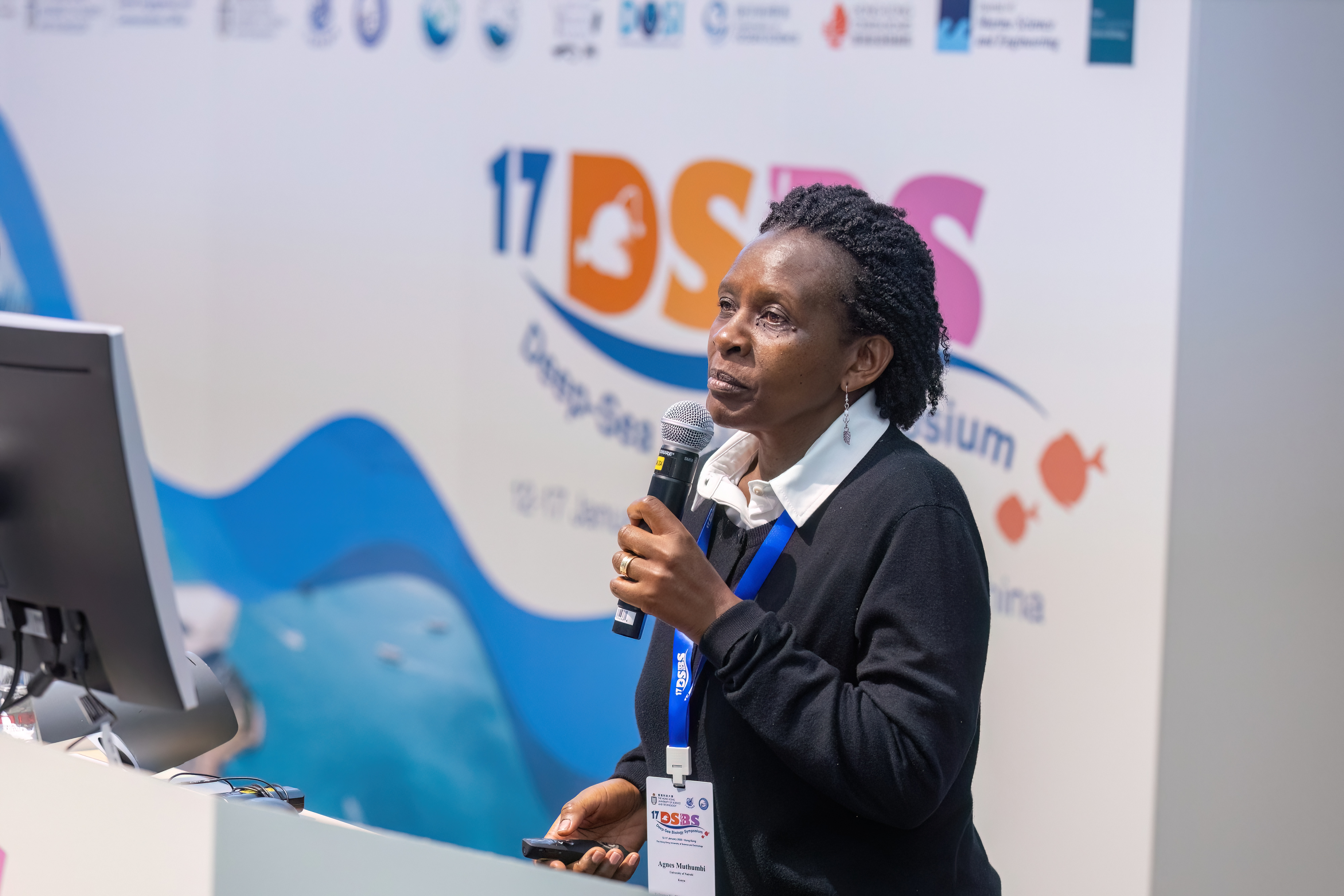
Agnes Muthumbi
University of Nairobi, Kenya
I am lucky to have received a travel grant to attend the 17th DSBS, thanks to the symposium organisers and DOSI for the support. The symposium was from the 13th to 18th January 2025. I arrived in Hong Kong on Saturday 11th January in the evening, my first time to travel this far to the east which of course comes with the jetlag experience. Although I had a bit of rough time with the immigration at the airport, I soon forgot that because everything else worked so smoothly, thanks to the order and good planning of the country and a public transport system that works well.
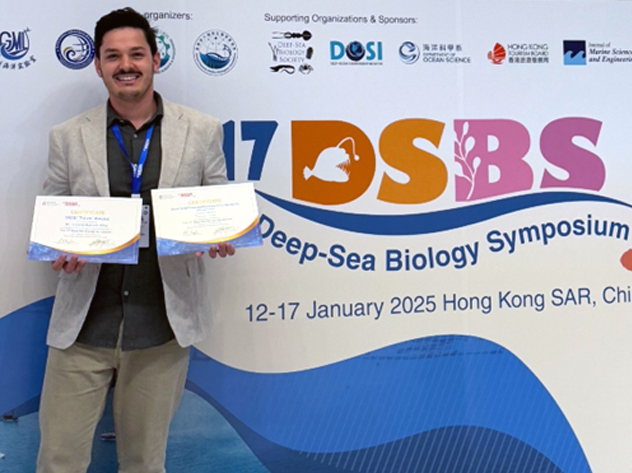
Juliano Marcelo Vilke
University of Algarve, Portugal
I would like to begin by expressing my sincere gratitude to the 17th Deep Sea Biology Symposium (DSBS) committee and DOSI for the travel grant that enabled me to attend this life-changing conference. As a PhD student just starting my journey, participating in the 17th DSBS was a significant milestone. It not only broadened my perspective on deep-sea research but also introduced me to the incredible work being done in this field.
Beyond the knowledge gained, the conference provided a valuable opportunity to connect with fellow students and establish meaningful networks. Surrounded by some of the most renowned researchers in deep-sea science, I was inspired by the way the event fostered an environment where young researchers and students were encouraged to share their work. The respectful discussions, constructive feedback, and recognition of outstanding contributions made this an incredibly enriching experience.

Kurt Bryant Bacharo
University of the Ryukyus, Japan
The idea of doing deep-sea biology, had never occurred to me, as I have been used in studying the readily accessible shallow-water reefs in the Philippines, where there has been little to no infrastructural support for deep-sea research. In 2023, I joined Professor James Reimer’s laboratory at the University of the Ryukyus in Okinawa, Japan as a graduate student. It was here that I have been introduced to the Japan Agency for Marine-Earth Science and Technology (JAMSTEC). Through the generous grant poured by Ocean Census, I was able to participate in my first deep-sea research cruise aboard JAMSTEC’s R/V Kaimei that explored the biodiversity found in the limestone caves of the Daito Islands and the seamounts of the Kyushu-Palau Ridge. This cruise was led by chief scientist Dr. Yoshihiro Fujiwara, who was my supervisor’s former postdoctoral advisor.
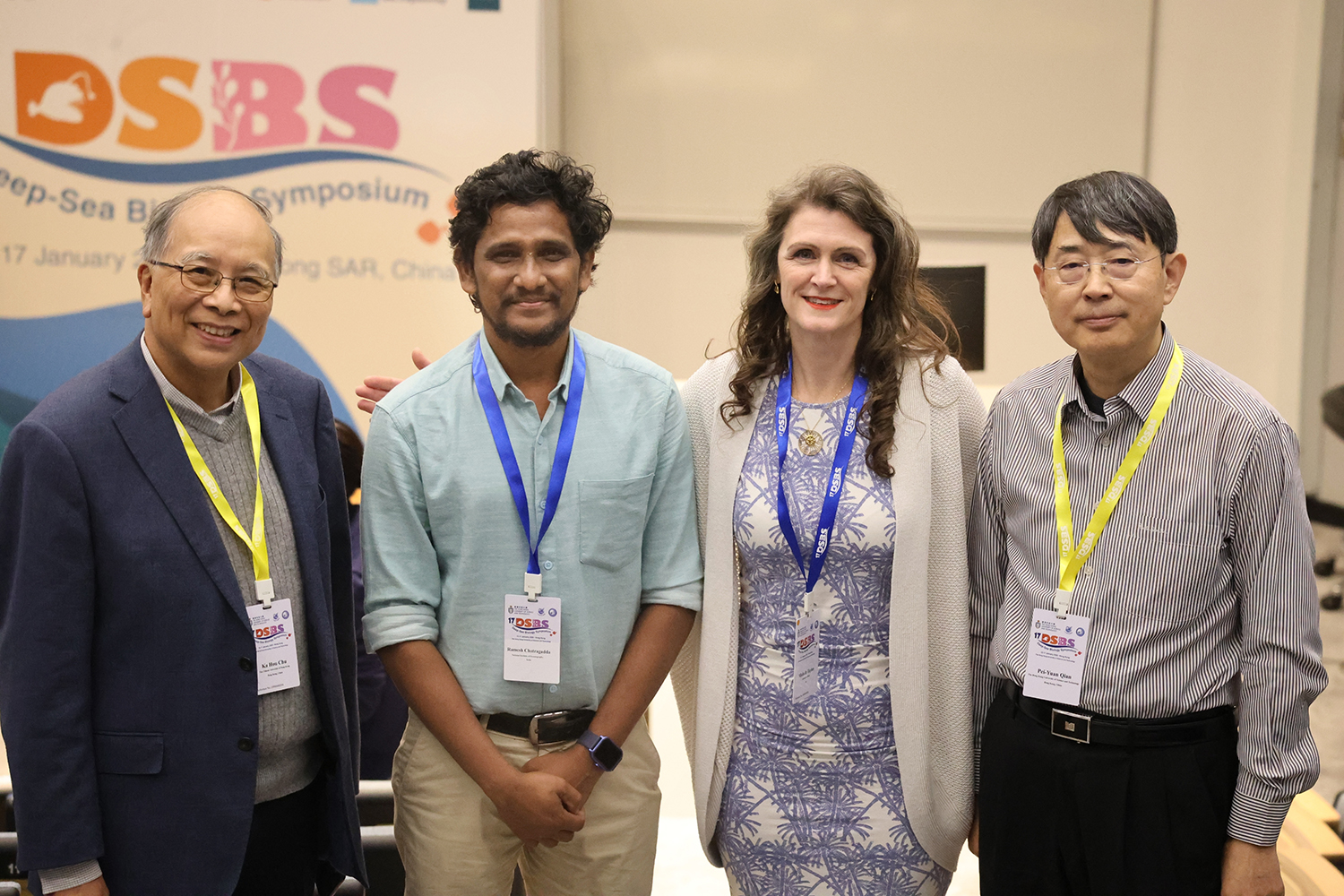
Ramesh Chatragadda
National Institute of Oceanography, India
I had the privilege of attending 17th Deep Sea Biology Symposium (17DSBS) held from 12-17 January 2025 at Hong Kong University of Science and Technology, Hong Kong SAR, China. I had the privilege of attending my first-ever Deep-Sea Biology Symposium, a milestone experience that broadened my knowledge and perspectives on this fascinating field. The event exceeded my expectations, offering invaluable insights into deep-sea biodiversity patterns from diverse regions. The symposium highlighted the urgent need for conservation efforts, particularly in the face of deep-sea mining, which poses a devastating threat to biodiversity. Several researchers have emphasized the importance of protecting deep-sea diversity, including unique ecosystems like cold seeps and hydrothermal vents. The event also underscored the significance of innovative research techniques, such as eDNA and metabarcoding, in monitoring diversity and distribution patterns of microbes and macroorganisms from pelagic and benthic regions. Ultimately, the symposium stressed the vital role of deep-sea researchers in conservation efforts and encouraged collaborative efforts to protect the world's precious deep-sea ecosystems.
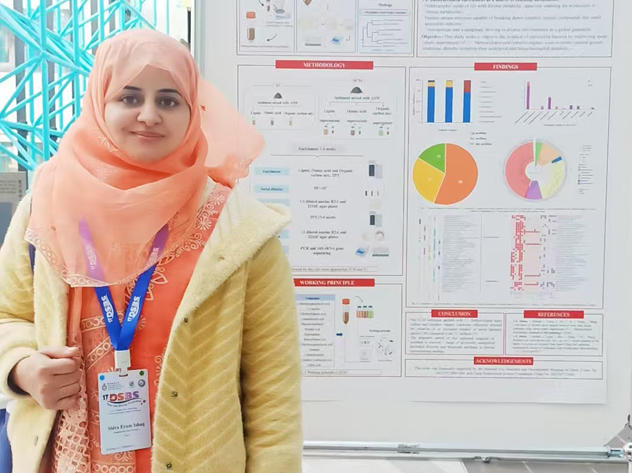
Sidra Erum Ishaq
Shanghai Jiao Tong University, China
Attending the 17th Deep-Sea Biology Symposium (17DSBS) was an incredible opportunity to immerse myself in the latest advancements in deep-sea microbiology, engage with leading scientists, and share my own research on cultivating uncultured deep-ocean microbes. Receiving the Travel Award made this journey possible, and I am deeply grateful for the support. I was particularly excited to explore novel cultivation techniques, exchange ideas with experts, and gain insights that could enhance my research.
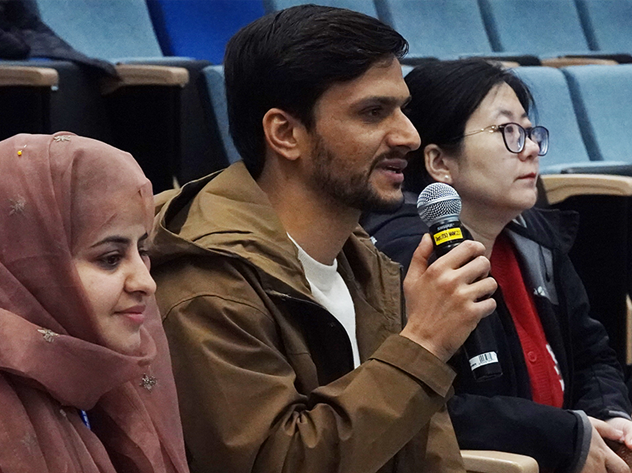
Tariq Ahmad
Shanghai Jiao Tong University, China
Attending the 17th Deep-Sea Biology Symposium (17DSBS) was a remarkable experience that provided me with the opportunity to engage with leading scientists, discuss innovative research, and present my work on the cultivation of deep-sea microbes. Receiving the Travel Award made it possible for me to be part of this prestigious event, and I am truly grateful for the support. I was eager to explore new perspectives on microbial ecology, network with experts, and gain insights that would enhance my research on deep-sea microbiology.
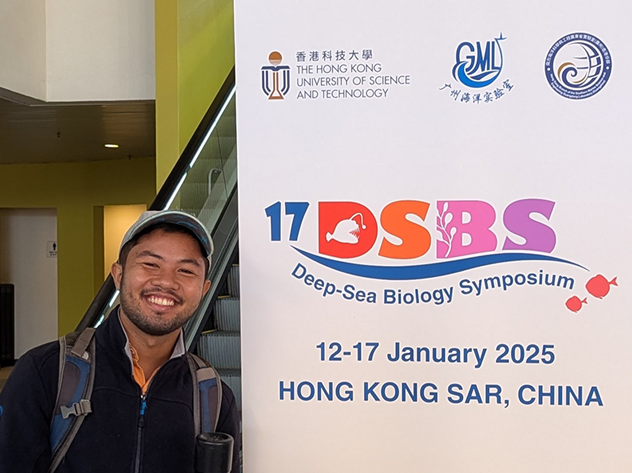
Titus Cañete
Large Marine Vertebrates Research Institute Philippines, Philippines
Hong Kong was a first for me, and it was colder than I had expected. Thankfully, I had family in the city who made sure I was geared up for the weather. But beyond the crisp air and towering skylines, what truly made this trip memorable was attending the 17th Deep-Sea Biology Symposium (DSBS)—a gathering of some of the world’s brightest minds in deep-sea research.
Every day began with train and bus rides to the venue—quiet moments that became my personal preparation time before immersing myself in a whirlwind of scientific discussions. The symposium was filled with incredible talks, and I often found myself caught between the difficult decision of grabbing one of the delicious snacks or diving into a conversation with a fellow researcher—sometimes, we managed to do both!
17DSBS Travel Award
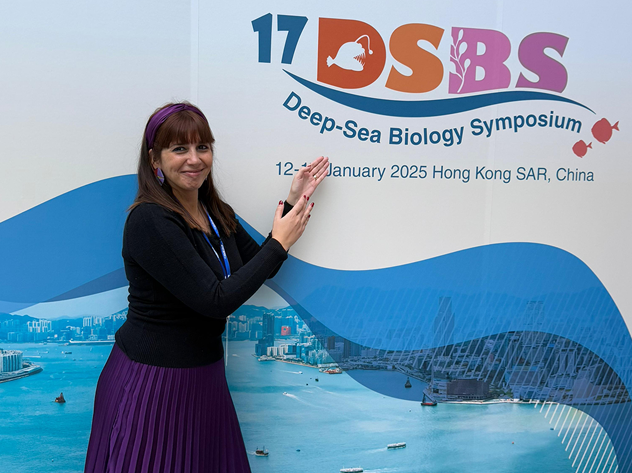
Cármen Sofia Vieira de Sousa
University of Algarve, Portugal
Hello! I am Cármen Sofia Vieira de Sousa, and I am thrilled to share that my application for the travel grant was successfully awarded, enabling me to attend the 17th Deep-Sea Biology Symposium (17DSBS), held from 12-17 January 2025, at the Hong Kong University of Science and Technology (HKUST).
This award provided me with an incredible experience. I had the opportunity to meet outstanding researchers at the international level, attend fascinating presentations across various areas of deep-sea science, and share my own research on the effects of metal toxicity in deep-sea mussels within the context of deep-sea mining.
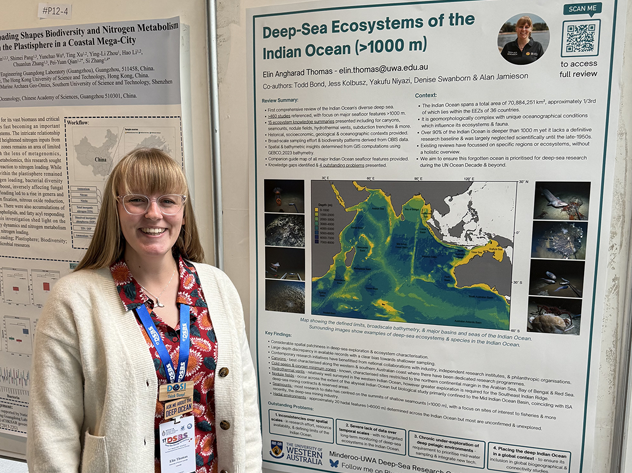
Elin Thomas
University of Western Australia, Australia
With the support of the 17DSBS Travel Award, I attended the 17th Deep-Sea Biology Symposium in January 2025, hosted by the Hong Kong University of Science and Technology. This was the first time that the Symposium was held in Asia and my first time visiting bustling Hong Kong. It was a busy and exciting week and I’m very grateful to the 17DSBS Secretariat for supporting my attendance.

Irina Zhulay
University of Bergen, Norway
The 17th DSBS was a big event and brought together over 350 deep-sea enthusiasts from over the world (more than 40 countries), with 200 oral presentations, and an equal number of poster presentations over five days of sessions. Thanks to the generous support of the travel award, I was able to attend in person and share the results of my postdoctoral research conducted at the University of Bergen (UiB, BIO, Deep-Sea Biology Group and Centre for Deep Sea Research), Norway. The DSBS was held for the first time in the Pacific Asia region, in the dynamic Hong Kong. It was also my first time traveling to this part of the world. After the long journey from Norway and the jet lag, everything felt as if I were drifting through a pleasant dream - filled with inspiring talks, engaging conversations, meetings with old and new friends, and the excitement of being at a great conference in an entirely new place.
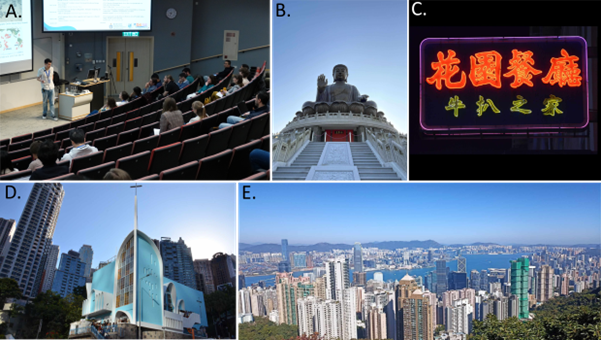
Loïc Van Audenhaege
National Oceanography Centre, UK
I am a postdoctoral researcher at the National Oceanography Centre in Southampton, UK, specializing in the study of megafaunal communities in polymetallic nodule abyssal plains of the Pacific Ocean using benthic imagery. I was honoured to receive a travel award to attend the 17th Deep-Sea Biology Symposium in Hong Kong.
This symposium provided a unique platform to explore the remarkable diversity of deep-sea ecosystems and the latest advancements in deep-sea research.

Nina Yang
Woods Hole Oceanographic Institution, USA
As an as early-career deep-sea scientist, attending the 17th Deep-Sea Biology Symposium at HKUST was an invaluable opportunity. This event not only broadened my scientific horizons but also provided me with the chance to share my research and engage with colleagues in person!
One of the most memorable aspects of the conference was the range of scientific topics, particularly those focused on deep sea ecology, conservation, and pelagic biology.
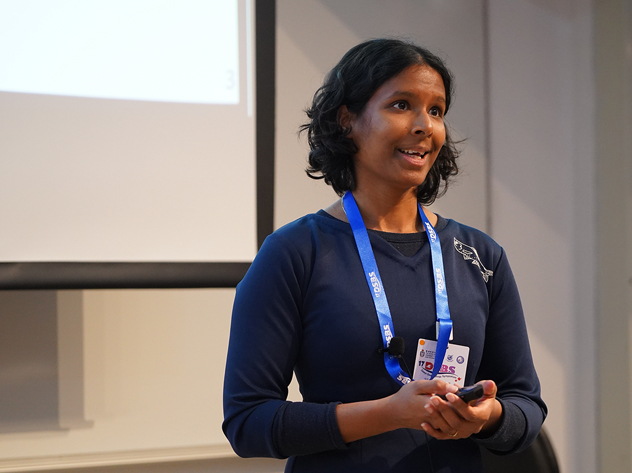
Pavanee A. Annasawmy
European University Institute of the Sea, France
I am a biological oceanographer and for the last 10 years, I have been working on a group of organisms collectively called micronekton. Micronekton is composed of fish, crustaceans, and squids that range from 2 to 20 cm in size and live in the deep ocean. I was nominated by the United Nations to act as coordinating author to assemble a team of experts to work on the supchapter on seamounts for the 3rd World Ocean Assessment.
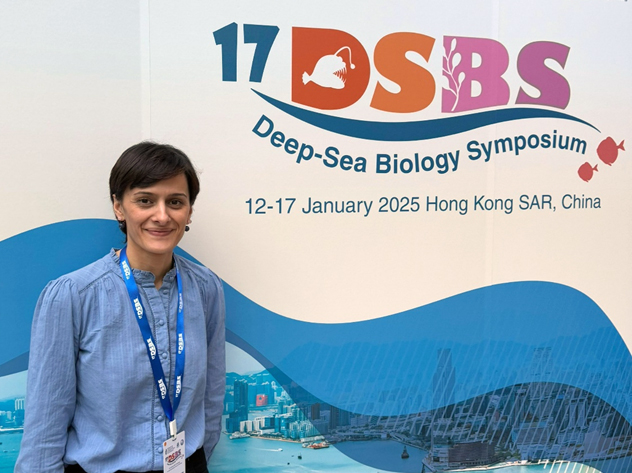
Pasqualina Gaetano
University of Algarve, Portugal
The 17th Deep-Sea Biology Symposium was a great opportunity for a junior postdoc like me, newly immersed in the field of deep-sea research. The diverse and engaging topics explored during the daily sessions, along with the multidisciplinary and insightful talks and posters presented, created an invaluable platform for learning, professional development, and interactions within the deep-sea biology community.
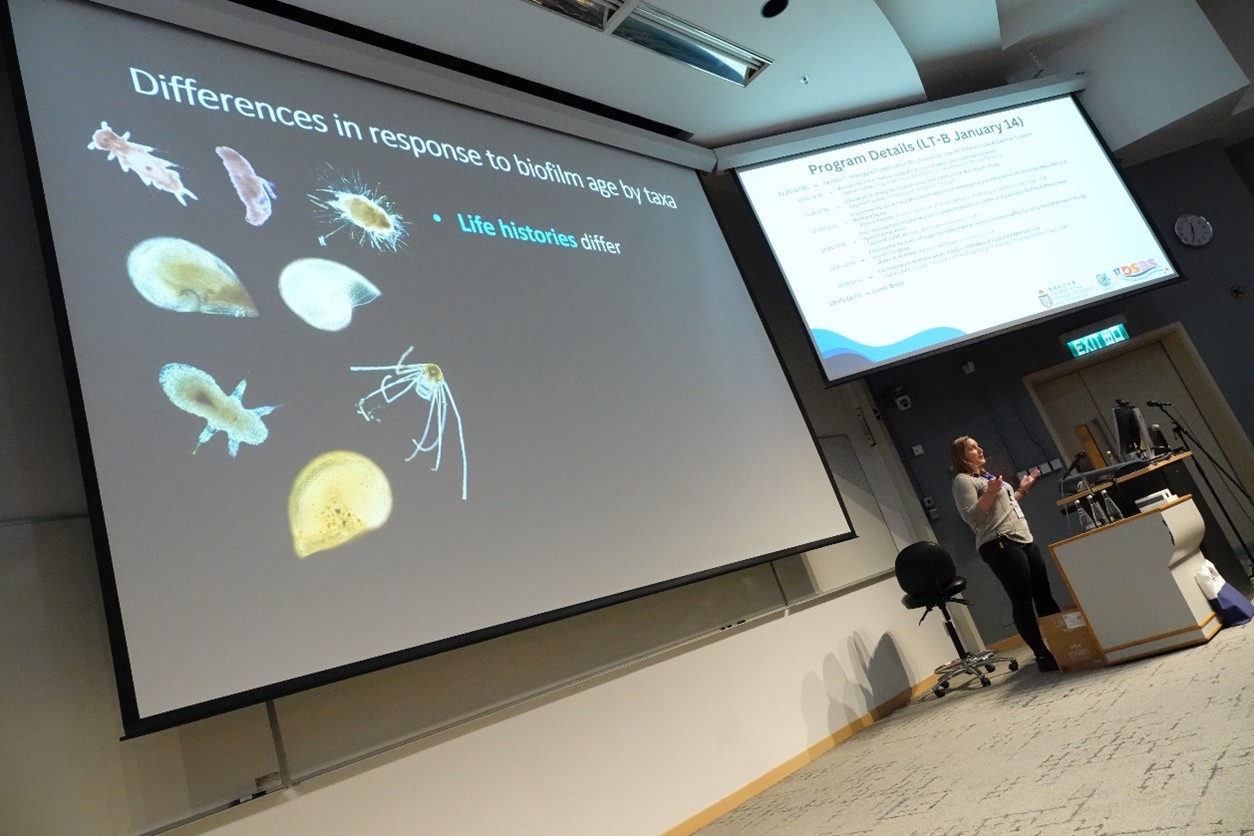
Tanika M. Ladd
Western Washington University, USA
For the 17th Deep-Sea Biology Symposium, a horde of scientists from around the world descended on Hong Kong. I was one of these scientists coming from the United States where I am currently a postdoctoral researcher at Western Washington University. This was my first time in Hong Kong and to get there I took the longest flight I have ever taken (~13 hrs). The week of the symposium flew by as we dove into the science, caught up with old colleagues and friends, made new connections, and explored the beautiful city of Hong Kong.
